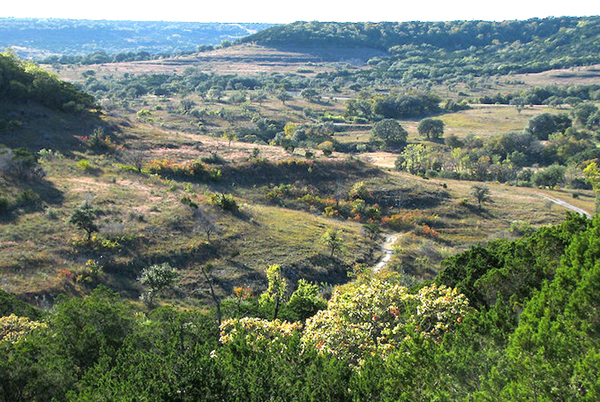- La Feria Community Holds Succesful Business Mixer Event
- Little Nashville to Take Place in Downtown Mercedes
- Lions Basketball Captures District Gold
- La Feria ISD Students Compete in Regional Chess Tournament
- Lions End First Half of 32-4A on a High Note
- La Feria ISD Held Another Successful Parent Conference
- Strong Appearance for Lions at Hidalgo Power Meet
- LFECHS Students Get to Meet Local Actress
- Students Participate in Marine Biology Camp
- Two LFECHS Students Qualify for All-State Band
U.S. Senate Considers Permanent Funding for Parks and Recreation Program
- Updated: November 22, 2019

Texas has received more than $580 million in LWCF funding over the past five decades, protecting such places as Balcones Canyonlands, Big Thicket National Preserve, San Antonio Missions National Historic Park, and Padre Islands National Seashore. Photo: USFWS
by Eric Galatas
AUSTIN, Texas – After winning permanent reauthorization for the Land and Water Conservation Fund, public lands advocates are pressing leaders in Congress to fully fund the program that taps offshore oil and gas royalties for conservation and recreation projects.
A Senate committee is set to vote on a permanent funding bill just after Veterans Day, and Abe Bullman – vice chairman of the Backcountry Hunters and Anglers’ Texas Chapter – points out that veterans frequently turn to public lands for solace after serving in combat.
“We need to protect those places even more dearly for the people who have had to endure that hardship of fighting for our country,” says Bullman. “It’s extremely important we make sure that those places are available, have access to them, and that they can go out and enjoy them after they have served our country so bravely.”
After Congress permanently reauthorized the program in March, the Trump administration proposed a budget that nearly zeroed out money for the parks and public lands fund. And recent budgets by the House and Senate call for releasing just half of the $900 million available.
Some lawmakers who have opposed a permanent funding bill say allocating money year-by-year provides more flexibility.
Mary Jo Brooks, public lands communications manager with the National Wildlife Federation, says the decision about where offshore oil and gas production fees should be invested was clear when the fund was established five decades ago.
“It was decided already a long time ago that the Land and Water Conservation Fund is entitled to $900 million,” says Brooks. “And so, that should just be money that is automatically allocated, so that there can’t be this political football of playing games with it.”
Since the program began in 1964, Congress only has allocated full funding a handful of times, meaning some $22 billion meant to support America’s public lands, parks and public access points have been diverted.
Texas has received more than $580 million to protect such places as the Big Thicket National Preserve, the Lower Rio Grande National Wildlife Refuges, and Padre Islands National Seashore.


